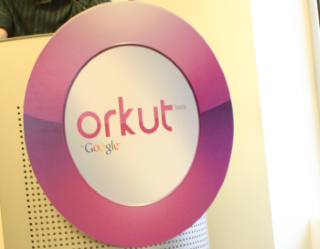 Just two weeks ago, I wrote an article for Corporate Eye about Google+ turning three years old and Google’s strategy for the future. A few days later, Google announced that it would be shutting down Orkut.
Just two weeks ago, I wrote an article for Corporate Eye about Google+ turning three years old and Google’s strategy for the future. A few days later, Google announced that it would be shutting down Orkut.
What is Orkut? If you don’t live in Brazil, you might not know the Orkut brand. Long story short, Orkut is a Google-owned social network. Back in 2004, over half of Orkut’s traffic was from the United States, but it quickly fell out of favor. However, it stayed popular in Brazil and India, and in 2007, it was one of the most trafficked sites in both countries. In fact, Orkut operations moved to Brazil in 2008. In 2014, nearly half of Orkut’s traffic was from Brazil while nearly 15% was from India.
In a blog post, Google explained that Orkut would completely shut down on September 30, 2014, giving users just three months to export all of their profile data, community posts, and pictures using Google Takeout. Additionally, an archive of all public Orkut communities will be made available on September 30, 2014. The blog post included an apology from Google saying, “It’s been a great 10 years, and we apologize to those of you still actively using the service. We hope you will find other online communities to spark more conversations and build even more connections for the next decade and beyond.”
It can be assumed that Google hopes most of the Orkut users will shift to Google+. The blog post to users, written by Paulo Golgher, Engineering Director, stated, “Over the past decade, YouTube, Blogger and Google+ have taken off, with communities springing up in every corner of the world. Because the growth of these communities has outpaced Orkut’s growth, we’ve decided to focus our energy and resources on making these other social platforms as amazing as possible for everyone who uses them.”
Overall, the shutdown of Orkut shouldn’t be surprising. The last time the Orkut blog was updated was 2012 and other development appears to have stopped around the same time. Google+ is Google’s priority today, and Orkut wasn’t delivering the value that it needed to deliver if it wanted to stay alive. Couple Google’s current strategic focus with the legal entanglements, privacy concerns, and security issues related to Orkut in recent years, and the writing was on the wall. However, Orkut was an early player in the world of social networking. It actually debuted a month before Facebook. As a result, Orkut retains a sense of nostalgia and will hold a place in social networking history just like MySpace.
The question now becomes, what’s next for Google? What do you think?
Image: Programa Novo TV Culturo licensed CC BY 2.0
Lucy is Editor at Corporate Eye


